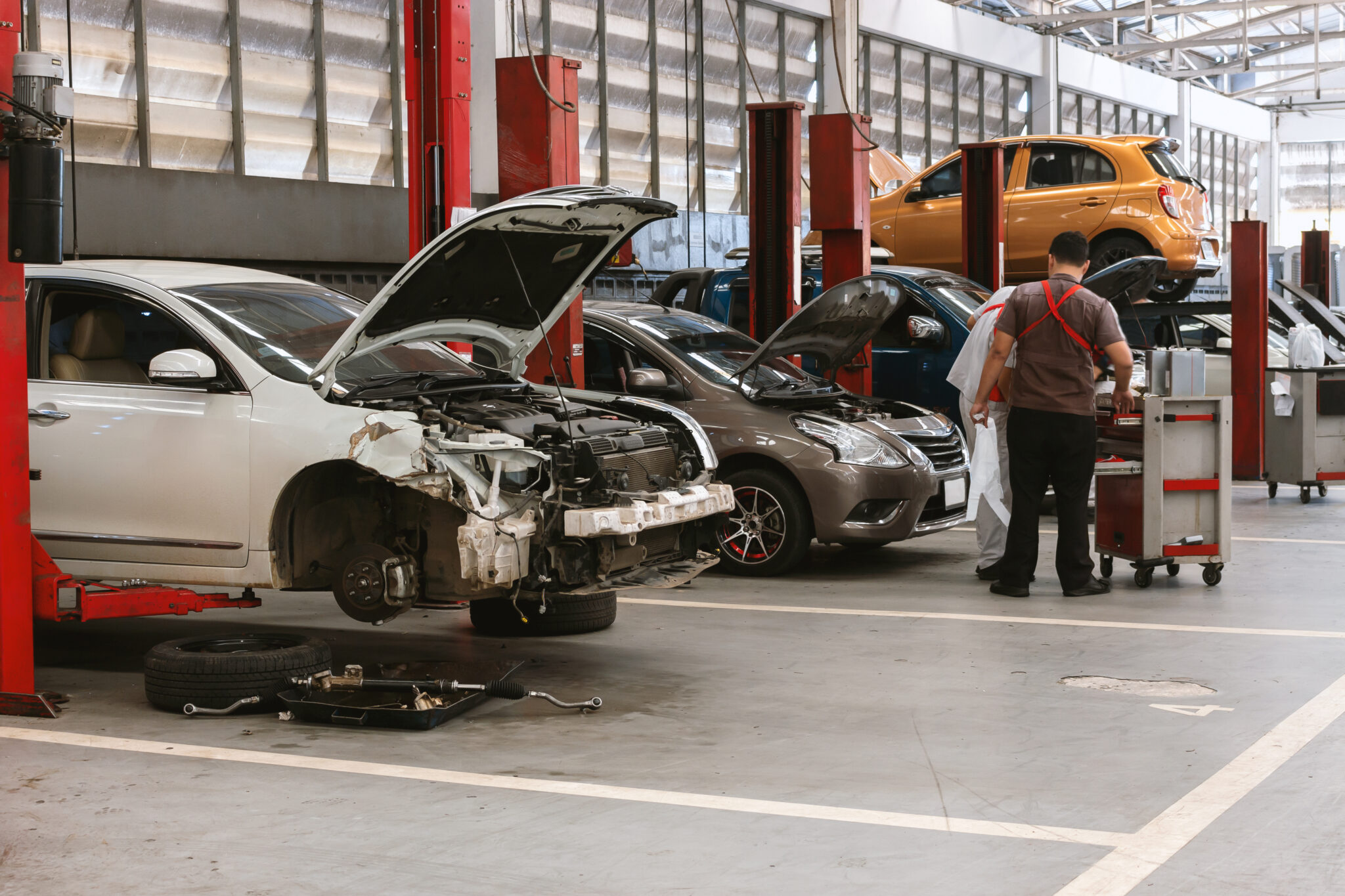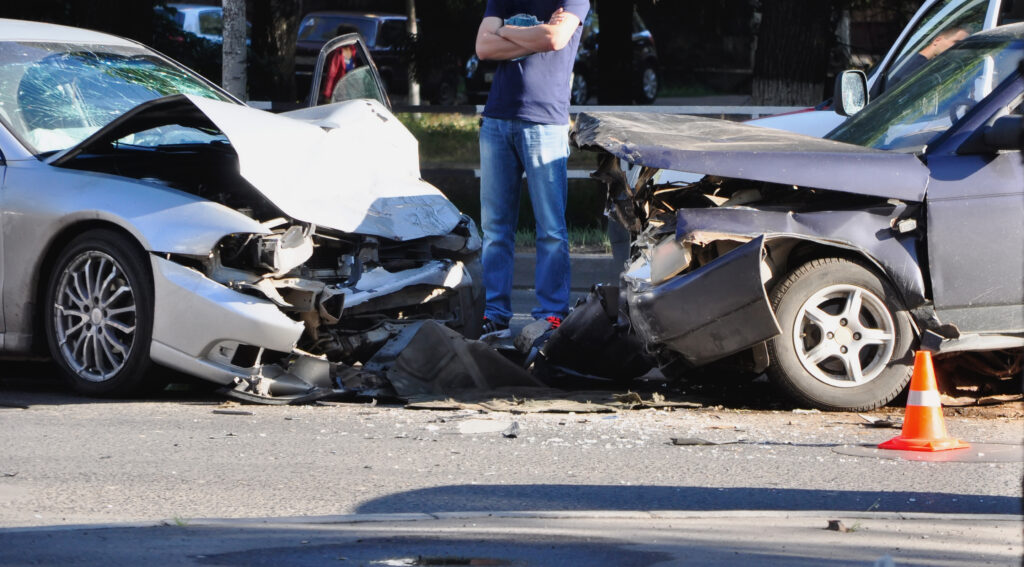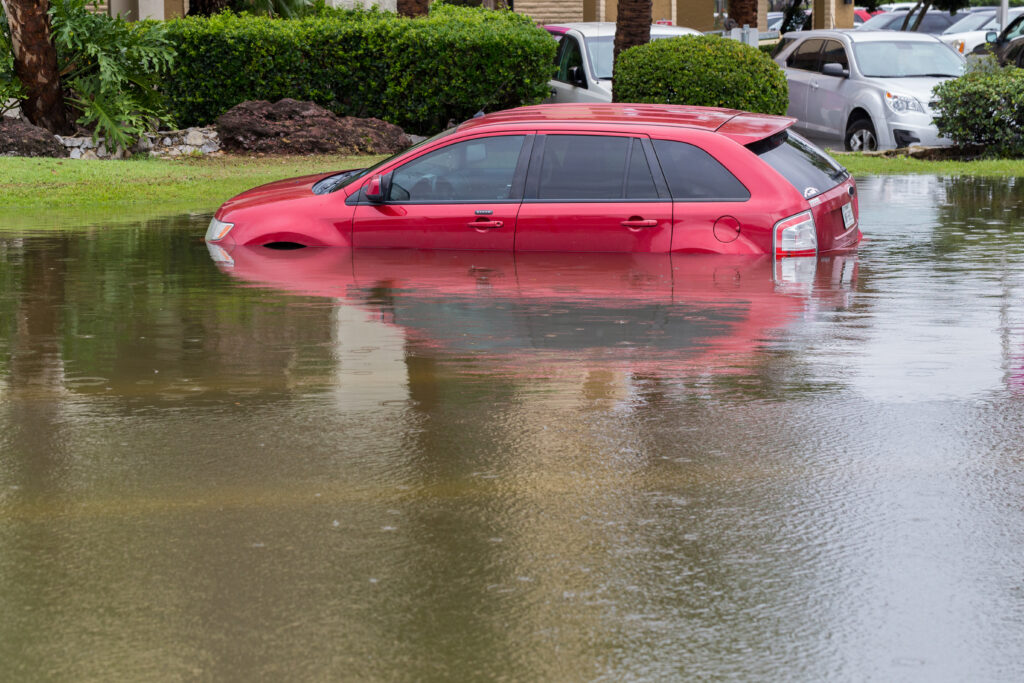Did you buy a salvage vehicle and rebuild it? Are you looking to buy a used car? If this is you, you’ll have to deal with rebuilt titles. Also, depending on its claim history and current condition, you could have a hard time finding coverage.
Insuring a car with this title branding can be tough because there are many unknowns. Providers don’t know how badly damaged or how safe the vehicle is. And that’s a risk some companies are unwilling to accept.
This article will teach you about rebuilt titles and other passenger vehicle brands. It’ll also teach you how to buy insurance coverage for one. This includes:
- Salvage vs. rebuilt titles
- What types of coverage are available
- How much more it costs to insure rebuilt titles
- What companies insure rebuilt titles
- Frequently asked questions
Salvage vs. Rebuilt Titles
There’s a lot of confusion about the difference between salvage and rebuilt titles. They’re similar because they both involve totaled vehicles. Here’s a quick definition of each type of title and how they differ:
Rebuilt Title Cars
A vehicle branded “rebuilt” was once declared a total loss by its insurance company and branded as a salvage. This designation means the car is undrivable until it meets safety requirements and passes an inspection. Once repaired and declared roadworthy, it receives a state-assigned reconstructed title.
States often have different requirements for certification reconditioned cars. Some may require an inspection, while others could only require it to go through a checklist, such as in Washington state. Be sure to check with your state’s laws on totaled vehicle reconditioning to learn how or if you can sufficiently repair yours to get one.
Here are some steps that you might need to carry out to obtain a rebuilt or rebuilt-salvage title:
- Get the car sufficient repairs to be drivable
- File the appropriate papers with your state (i.e., applications, forms, etc.)
- Save receipts. States like Georgia require proof of major improvements
- You need to schedule an inspection if your state requires it (check state requirements)
Salvage Title Cars
A salvage title indicates that a car is a total loss and is no longer street-legal. This differs from other branding where the state deems them street-legal. You can’t legally drive a salvaged vehicle. Because of that, it’s impossible to insure one. Repairing it to the point where a state will rebrand the title is the only way to drive it.
Most people only buy a salvaged car with the intent to restore it. This is something to consider if you’re thinking about buying one. Be aware that some sellers may try to hide the fact that a vehicle was totaled and then repaired. Use caution when buying a used car to avoid this unpleasant surprise.
Branded Titles
You might see the term “branded” when you read about rebuilt and revived vehicles. A brand reflects the type of damage that your car has sustained during its lifespan. They’re more of a category than a type of title. Branding can affect what types of insurance coverage your vehicle qualifies for.
Examples of vehicle title brands include:
- Rebuilt
- Salvage
- Water damage
- Hail damage
- Lemon
- Odometer rollback
Title brands may vary from state to state. It’s best to check with your state’s Department of Motor Vehicles (DMV) to know what to look for.
Rebuilt Title Insurance Basics
In most cases, you should be able to insure a properly repaired and rebuilt vehicle. According to Zachary Schneiderman, president of Schneiderman Insurance Agency in Granada Hills, California, “Insurance companies want a car to be roadworthy.” This means your car has passed all state inspections and has a valid title. “Rebuilt titles may be rejected, but it’s not common,” says Schneiderman.
Some providers, such as PEMCO, don’t offer coverage options to owners of cars with rebuilt titles. That’s because they’re unsure of how bad the damages were. It’s also because these vehicles are a potential safety risk.
Full Coverage May Not Be Available
When you do find a provider willing to cover a rebuild, you should have no problem getting basic liability coverage. This is the minimum amount of auto insurance that most states require to drive. Liability kicks in when you’re at fault in an accident. It protects you from the following:
- Property damage, such as light posts, trees, buildings, etc.
- Bodily injury, such as medical bills, funeral costs, long-term care, etc.
The problem with having a vehicle with a rebuilt title is that you may be unable to get full coverage. This complete insurance package includes collision and comprehensive, which protect you from the following:
- Natural disasters
- Theft
- Vandalism
- Hitting an animal
- Break-ins
- Injuries to you, your passengers, and people in other vehicles
- Collisions whether you’re at-fault or not
Per Schneiderman, you may be limited to a liability-only policy because “the car may not be worth much.” A rebuilt vehicle’s actual cash value (ACV) takes a drastic hit because of its accident history. Keep in mind that state laws and insurers’ preferences for insuring rebuilt title cars apply.
For the most part, there isn’t anything special about insuring cars with rebuilt titles. There’s the possibility you’ll be limited to a liability-only policy. Not only that, but you’ll probably pay more than you would for a comparable vehicle with a clean title. Next, we’ll look at pricing and which insurance companies provide coverage.
Rebuilt Title Insurance Cost
Some estimate that it costs as much as 20% more to insure vehicles with rebuilt titles. Even so, many other elements affect your rates. Here are some of the primary factors that providers consider when pricing your policy:
All of the above will affect the price of your auto insurance policy. But remember that insurers look at your claims history and driving record the most when they set your rates. If you’ve filed claims or received traffic tickets recently, your coverage won’t be cheap.
Providers also have misgivings about a rebuilt car’s safety and mechanical concerns. But in the end, you’ll most likely get coverage if the vehicle passes safety tests and the state deems it as “roadworthy.” But note that you’ll have higher rates than someone with the same car. Car titles branded as rebuilt simply cost more to insure.
Just because you have to pay more doesn’t mean you have to shell out more than you need to. It’s wise to shop around and compare prices to find the best deal.
Insurance Companies That Cover Rebuilt Titles
If you recently purchased a vehicle with a rebuilt title and wonder which companies insure them, don’t despair. Most insurers accept properly repaired and restored cars, with a few exceptions. And many others limit policyholders to liability-only policies. Even so, most providers will still cover a rebuilt salvage car once it’s certified. But be prepared for sticker shock, because rebranded title insurance costs more than coverage for a comparable make and model with a clean title.
This is a list of the major national auto insurance companies cover cars with rebuilt titles:
- Allstate
- American Family
- GEICO
- Farmers
- Infinity
- Kemper
- Nationwide
- Progressive
- State Farm
- USAA
Note: each company has unique requirements and restrictions for issuing titles for rebuilt vehicles, including state availability.
Frequently Asked Questions
Should you buy a car with a rebuilt title?
The short answer is that it depends. People commonly buy cars with rebranded or rebuilt titles because they want to get a good deal. Sadly, they usually pay extra for auto insurance later on. These vehicles are cheap to buy but cost more in the long run.
Remember to be careful of cars with salvage titles as well. These vehicles are not drivable. To be able to drive it, you’d have to restore the car. Unfortunately, restorations are expensive and time-consuming.
Does a rebuilt title affect my car’s resale value?
If your vehicle is rebranded, it can negatively affect it’s resale value. According to Kelley Blue Book, cars with rebuilt titles can decrease in value by about 20-40%. It’s because buyers don’t want to deal with a vehicle that was a total loss. They may also worry about potential insurance costs in the future.
Does a rebuilt title affect insurance?
Having a car with rebuilt branding affects your insurance in several ways. First, while you’ll probably find a company willing to insure rebuilds, you may be limited to liability coverage. The reason is that insurance providers view these vehicles as riskier than those with clean titles. It doesn’t matter to your carrier how safe a driver you are if it thinks your car is unsafe.
You can also expect to be at odds with your insurance company about your car’s value. It doesn’t matter how much money you throw into it—it’s a rebuild, and everyone will know it. Unfortunately, that will never change since rebuilt title brands are permanent.
Also, it costs more to insure rebuilt title cars than unbranded vehicles. You may pay as much as 20% more, which adds up over time. So, while you save money by purchasing one of these vehicles, some of these savings will be swallowed by higher auto insurance premiums.
Which companies insure cars with rebuilt titles?
Almost every insurer offers at least liability coverage to rebuilt vehicles. However, each provider has unique rules and requirements for branded cars you must satisfy before it writes you a policy. Make sure that you have all of the necessary forms and paperwork when shopping for insurance.
Can you get full coverage on a rebuilt title?
Most companies cover rebuilt title cars, but they may not offer full coverage policies. The reason is that it’s harder for insurers to know whether damage to a vehicle after an accident is new. The damage could be from a pre-existing crash. It’s hard to know for sure. And that’s reason enough for providers to be hesitant when it comes to cars with branded titles.
Does it cost more to insure a car with a rebuilt title?
Yes, insurance coverage for cars with rebuilt titles costs more because of their accident history. Insurers can access these records using your vehicle’s vehicle identification number (VIN). When they find out that a car was totaled, it raises safety concerns, even after it passes inspections.
Then, there’s the matter of a vehicle’s actual cash value (ACV). Your car loses value with “rebuilt” on the title. But you’ll be charged full price for coverage. Paying more while getting less is part of the price you pay for driving a rebranded car.
Are rebuilt titles better than salvage?
In a contest between salvages and rebuilds, the latter wins every time. First, you can register and drive a car with a rebuilt title, whereas salvages are little more than twisted hunks of metal. It also means that rebuilds are worth more and have a higher KBB value than salvages. One last factor that makes a rebuilt car better than a salvage is that you can insure the former.


